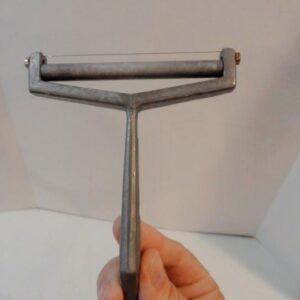Periods are often talked about in a way that makes people feel uncomfortable and confused. Periods are a normal and important part of a woman’s health, but men can be scared and uncomfortable about them because they don’t know much about them. This fear comes from not only not understanding how biological processes work, but also from cultural taboos that have been around for a long time.
What studies show men know about their periods.
Men still don’t know a lot about periods, which is strange. Many men wrongly think that you can’t pee with a tampon in, that different tampon sizes are for different holes, and that women lose a gallon of blood every period.
A brand of period products called INTIMINA polled 1,091 American men in 2021 to find out what they knew about menstruation. Surprisingly, 14% had never talked to a woman about her period, 25% thought tampons had to be taken off to go to the bathroom, and 11% thought women couldn’t get pregnant while they were on their period.
Even stranger ideas came up: 4% of men thought that tampons and periods could get lost in the genitalia, and 8% thought that periods make sharks want to swim with them.
Why guys don’t want to talk about periods.
These people said they didn’t notice a difference between menstrual blood and other kinds of blood. But the way they reacted when they first saw menstrual blood shows that they didn’t think this was okay. Another strong link that the interviewees saw was between menstrual blood and bodily waste. Many men said that menstruation was like feces.
On the plus side, 78% of men polled thought it was important to teach boys about periods. Researchers say that talking about menstruation with boys and men is very important for making it more normal. Case studies with good results show that teaching boys about periods lowers stigma and false beliefs.
This is what women say about how men react to their period blood.
Here are some stories from people who had to deal with bad feelings about having their period:
“I went to the mall today wearing my favorite white pants and had no idea that my period had started.” A guy saw the stain out of the blue and sneered, “That’s gross, women should just stay home when they have their periods.” I felt ashamed and left right away, but his mean words made me more determined to never let ignorance make me feel bad again.
My daughter, who is thirteen years old, came home crying today because she didn’t notice that her period started in class. Some boys made fun of her, and one of them said mean things like, “Women’s blood is awful and girls are dangerous.”
Fathers have a big impact on how girls and women think about their periods in the future.
Jane Bennett, who started the Chalice Foundation, talked about how she taught dads about periods. She discovered that fathers who understand and help their daughters through puberty have a big effect on how their daughters feel about their bodies and their confidence. This support helps girls feel good about their periods and develop a healthy outlook on them, which is good for their overall health.
Men can help break the taboo around periods by learning about them and talking about them openly. Let’s get rid of the myths and false ideas about menstruation and talk about it like the normal and important subject that it is.
Interesting fact: younger people are starting to get their periods earlier.
Teenagers and young adults are starting their periods earlier. It took younger people longer to get their periods on time and their first period came at a younger age.
86% of people born between 1950 and 1969 had their first period early, and only 0.6 % had their period very early. The average age for this was 12.5 years. People who were born between 2000 and 2005 had early periods 15.5% of the time and very early periods 1.4% of the time. Inside two years of their first period, the number of girls who had regular cycles dropped from 76% to 56% in these groups.
Watch more below…





